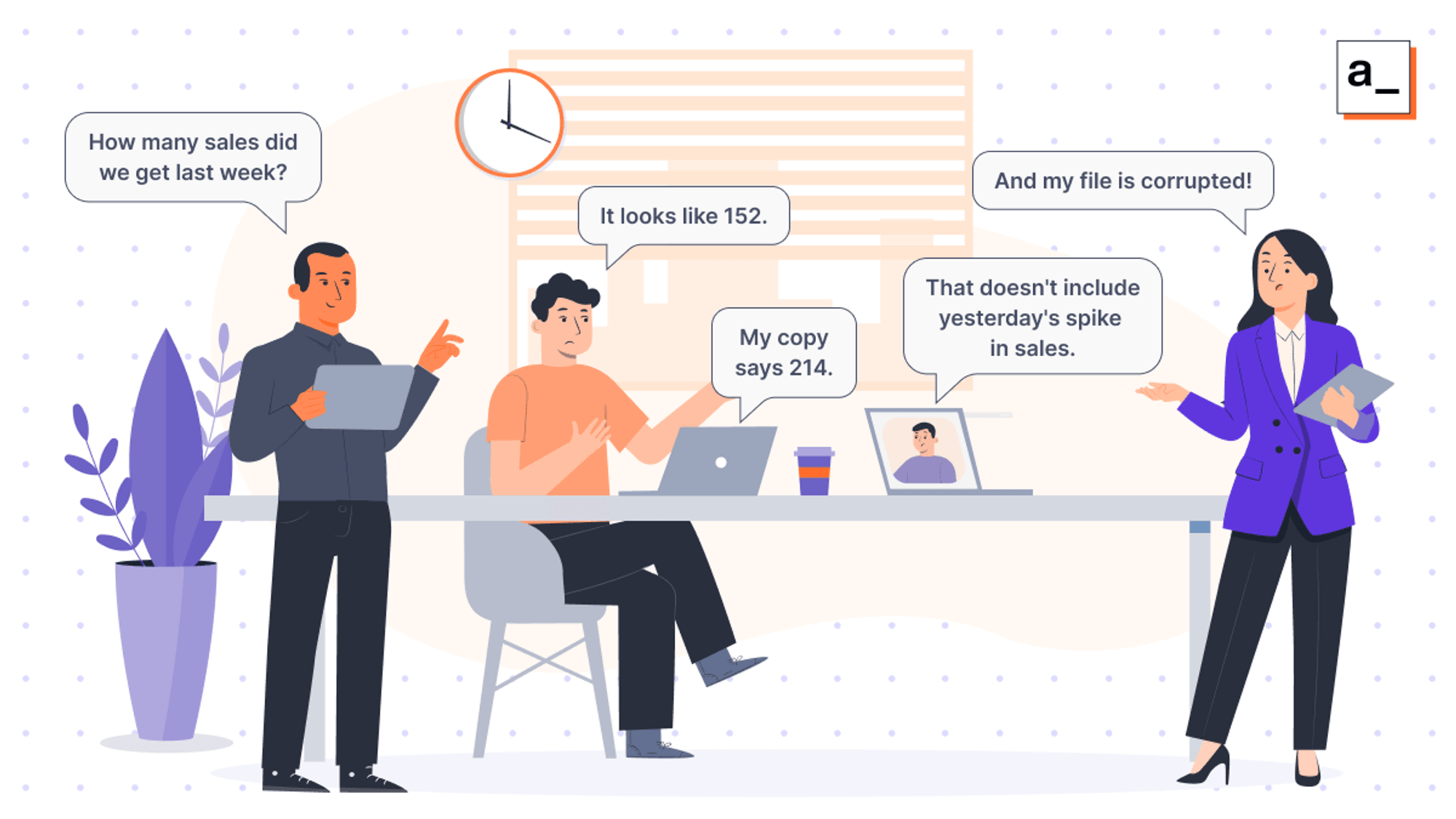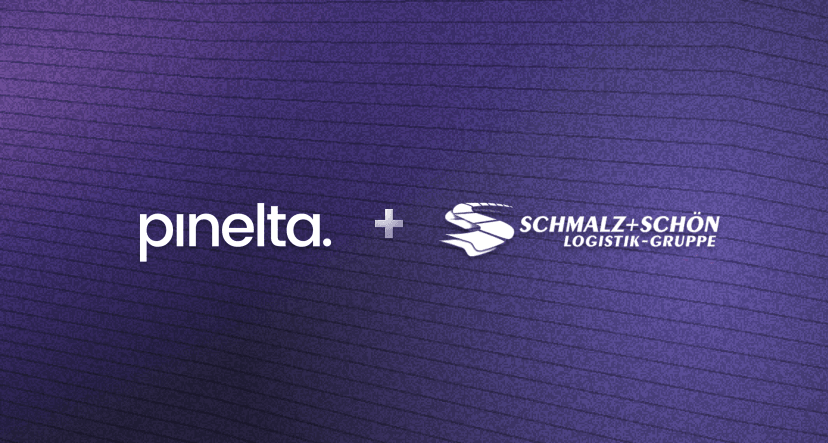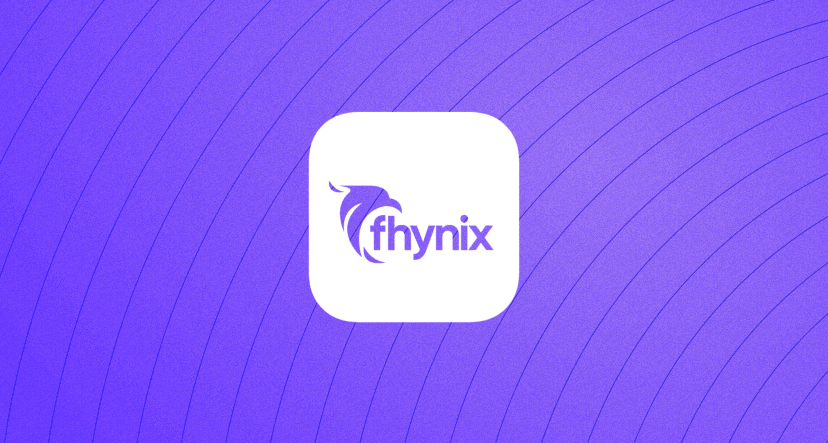ART Fertility Spends 70% Less Time Managing Internal Data with Appsmith
ART uses Appsmith to drastically cut the time they spend managing data. Learn how they did this and the impact these savings have on their business.
- 10
clinics in the Middle East and India
- Reduced time
to prototype from weeks to hours
- 70%
less time managing internal data

Storing data for your company's internal operations in Excel just doesn’t cut it anymore: you can’t have different versions of spreadsheets being sent around by different people, or manually copy data from your software to your spreadsheets. It’s a recipe for inaccurate, inconsistent data that will slow down your business and negatively impact customers.
Businesses acquire too much valuable data that they need to update in real time and work with collaboratively. This requires storing data in central databases that act as a single source of truth and using custom web-based applications to interact with these databases. However, creating and maintaining these applications can quickly become a labor-intensive task in itself unless you choose the right tools.
This is exactly what ART Fertility, an international fertility clinic, found when building tools to support their internal operations before they discovered Appsmith. We sat down with Oscar Santana, the CTO of ART, to discuss these issues and how he was able to integrate Appsmith to power ART’s operations while drastically increasing prototyping speed.
ART is an international fertility clinic with complex data systems spread globally
ART Fertility Clinic employs world-renowned doctors and embryologists in clinics spread across the Middle East and India. They provide personalized treatments, infertility diagnosis and treatments, and genetic testing. They also conduct research, present at international meetings, and publish fertility studies to drive their mission of helping couples become pregnant. All of this is data-driven, and due to the importance and sensitivity of this mission, the veracity and security of this data is paramount.
Data entry and management systems were slowing down productivity
Oscar’s role at ART includes improving and maintaining their data systems. When he took over, many of ART’s back-end operations were relying on outdated tools — everything from data collection to visualization was done using Excel spreadsheets. According to Oscar, “Previously, everything was done with Excel and Excel’s chart generation tool. However, this had the significant disadvantages that everyone had their own versions, it was not real-time, and everyone always depended on IT to download the data for them.”

Running a large company with ad hoc tools like Excel files causes massive operational bottlenecks. Large companies should instead consider using more robust internal tools to centralize and standardize information across the company.
Oscar envisioned replacing this unreliable assortment of ad-hoc tools with a single, robust tool that connects to all of ART’s data. However, there were major challenges with this because ART relied on proprietary systems that could not be modified due to lack of access to source code. Upgrading these systems required a solution that extends them, rather than modifying them.
However, prototyping solutions from scratch to extend their proprietary tools was a time-consuming process. Whenever colleagues requested a new application to improve operations, Oscar would spend weeks creating a prototype, only for them to discover that it was often not as useful as they had anticipated. While it is wise to experiment with new ideas to improve processes, spending so much time to create software tools that didn’t drive business results was a major business bottleneck.
Before working at ART, Oscar spent more than six years working at NaturalSoft on their VRepro software, which powers the operations of many fertility clinics throughout the world (including ART). He also had decades of experience using low-code tools and knew what they could offer.
From his previous experience, he knew that VRepro and the other tools that ART relied on all had robust APIs. This meant using a low-code platform could drastically reduce the time he’d need to build tools to interact with these back-end APIs and with databases for storing, managing, and sharing data. If he could find the right low-code tool, Oscar knew that he could rapidly increase prototyping speed. So he went to work looking for one.
ART used Appsmith to integrate these systems and build clean interfaces that generate clean data
Oscar tried out many platforms in the low-code space, but found that most were difficult to set up and use. Others were unintuitive, had little adoption, or were proprietary. He felt that it was too risky to build ART’s vast infrastructure on top of a tool that could disappear at any time. Whichever solution he chose, he wanted it to be open-source with strong community support behind it.
This requirement led him to Appsmith’s open-source low-code platform. After binge-watching Appsmith’s YouTube channel to learn everything he could about the platform and investigating Appsmith’s Discord community, he was confident that Appsmith would be an asset that grew with ART rather than being a foundation that might be pulled out from under them in the future.
After choosing Appsmith in the fall of 2022, he used Appsmith to build the tools that would drive major results for ART. He started off by spinning up Appsmith on a Windows machine with Docker running internally on the clinic’s servers to securely access their internal datasources.
These tools mainly interacted with VRepro data through its APIs and displayed them in user-friendly custom dashboards. This started with a management dashboard consolidating data about consultations, doctors and fertility procedures like IVF and OPU for each clinic. The application pulled real-time data from eight different database tables, with different metrics graphed using custom visualizations.
He then connected Appsmith with n8n, a powerful open-source platform for back-end automations, and another low-code tool called Velneo. Using this combination, he created more robust daily marketing reports and automatically sent them to the ART clinic leaders worldwide directly on their phones. He also implemented an invoicing system to interact with VRepro systems, which positively impacted the waiting time for payments. In total, ART Fertility implemented thirteen applications embedded in VRepro, using Appsmith’s embedding functionality.
All of this was initially done just by Oscar, a single developer. Without a low-code platform, implementing a set of tools this complex would have required an entire team of developers working over many months. In one case, he was able to prototype a new form in under two hours (when it previously took several weeks) and send it to stakeholders to evaluate and iterate on. Fast prototyping like this allowed his team to validate ideas before dumping massive amounts of time and effort into developing them.
How Appsmith made ART’s operations more efficient and improved customer outcomes
The team at ART immediately felt the positive impacts from these tools. Oscar was able to automate repetitive tasks company-wide and eliminate the problems caused by relying on manually copying data and sending spreadsheets. By extending proprietary and existing tools without modifying them, he was able to provide a single, streamlined interface to the data in all of them. These applications drove key business results by improving productivity and reducing costs (as ART did not need to invest in expensive tools like the ones Oscar benchmarked before finding Appsmith).
After this initial success, Oscar continued to iterate on the tool and expand functionality. “We create tools that improve our current applications, making it easier to access data, and we have created tools to assist the day-to-day tasks of those users who need to extract data from the application for their work.” These efficiency improvements throughout the business drive cost savings, which allow ART to serve its customers at a higher level.
In terms of business results, Oscar estimates that “ART has saved 70 to 80% of the time [spent] by the team to manage internal data because there used to be many steps involved. For example, if the Marketing team requested the source of leads, the IT team had to: search through their EMRs (electronic medical records), download the data to CSV format, clean the data, share this information with the team, and update Excel. Now, we have an application that shows them a real-time count of their leads by source, with a conversion rate calculation.”
Not only have these tools improved productivity and outcomes for the business — they’ve made the customer experience better too. ART Fertility created a four-panel blood lab and ultrasound appointments Kanban board that updates every two minutes, allowing patients to see the status of appointments. This dashboard is shown on large TV screens throughout all of the clinics in the Middle East and India to help frontline workers stay organized and provide care to customers as fast as possible.
Appsmith lets you solve business problems problems fast and on the fly
Oscar’s success with Appsmith has led to him taking steps to expand his team and continue creating tools to improve ART’s efficiency and the quality of their customer care. Due to Appsmith’s streamlined user interface and ability to integrate with almost any database or API, it can be used to consolidate the data and processes for almost any application in any industry – from fintech to agritech to most other industries as well.
You can start improving your own internal tools right now with Appsmith. We offer versions to suit a range of use cases and budgets: you can use the cloud-hosted free version or our new self-hosted free version for as long as you want, or you can upgrade to the Business or Enterprise editions at any time for mission-critical deployments.
Take Appsmith out for a spin
Talk to our team about your custom requirements or request a demo.


